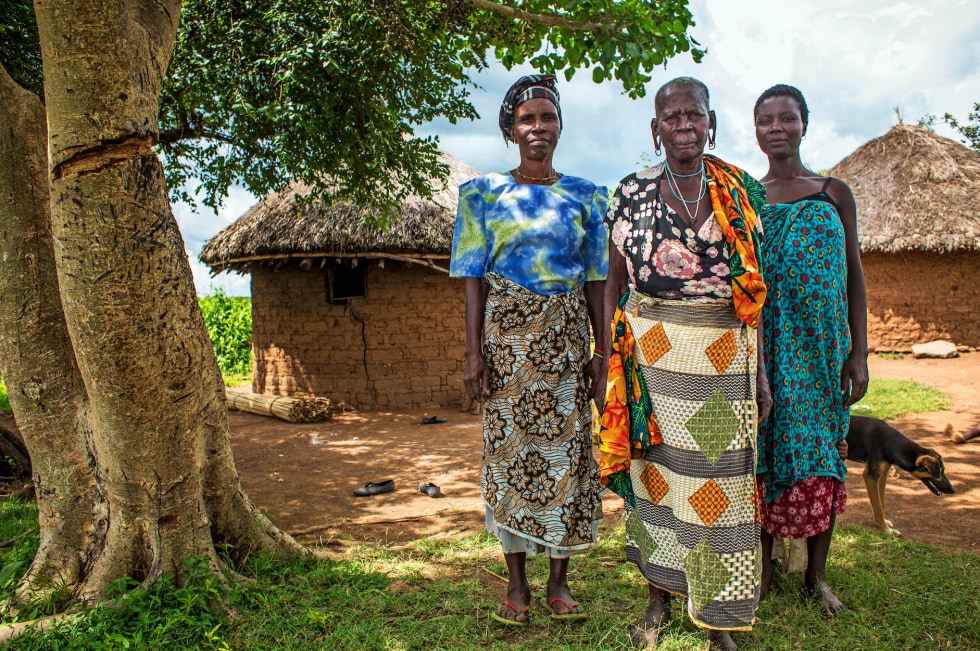3 inventive ways to end violence against women
One in three women has experienced some form of sexual or physical violence
Image: REUTERS/Jose Cabezas
Stay up to date:
International Security
It’s been over 20 years since the UN General Assembly committed to eradicating violence against women. And yet today, it’s estimated that one in three women has experienced some form of sexual or physical violence, often at the hands of an intimate partner.
This apparent lack of progress doesn’t mean people aren’t trying to do something about it – and sometimes they use some pretty creative means.
In 2013, a UN survey found that the majority of men in Indonesia – as many as 90% of respondents – thought that women and men should be treated the same.
But other parts of the survey pointed to deeply entrenched gender norms and worrying attitudes towards domestic violence. Almost 90% of men surveyed felt a woman’s most important role was to be a housewife. Depending on the region, between 40% and 49% of male respondents said a woman should tolerate violence if it meant keeping the family together.
Aliansi Laki-laki Baru – which means "the new men's alliance" in Indonesian – was set up to call into question these sorts of attitudes. In 2011, after a government official suggested women should avoid wearing mini-skirts if they did not want to be raped, this alliance of men decided there was only one thing to do: don a mini-skirt and hit the streets in protest.
“Too often it’s about the way women dress or the way they behave. So we thought if it’s really about mini-skirts, how about men wearing them?” the alliance’s founder told Reuters.
Accept our marketing cookies to access this content.
These cookies are currently disabled in your browser.
If, like many people, you were taught at school that the slave trade ended in the 19th century, you might be shocked to hear that up to 46 million people live in modern slavery.
One international organization estimates that around 22% of those victims are forced into a particularly dehumanizing form of servitude: sexual slavery.
Because, in many countries, the sex trade already operates out of sight, it can be particularly difficult for authorities to identify women who have been forced into prostitution. That’s why one US organization is turning to truckers for help.
“As the eyes and ears on our nation’s highways, the trucking industry has the opportunity to combat this injustice head on,” the Truckers against Trafficking website explains. The organization provides training for truckers, helping them recognize the signs of trafficking and teaching them how to respond.
As an NPR report on the initiative points out, this approach is already making an impact: “Trucking companies and law enforcement are enthusiastically on board, helping to reach nearly 250,000 drivers, whose calls to the hotline have freed hundreds of trafficking victims.”
It’s been so effective that some US states are considering making the training compulsory for all truck drivers.
In Tanzania, a 2013 government survey found that almost 50% of women had been victims of domestic abuse. Some of those women are taking matters into their own hands: by turning their backs on “traditional” married life and instead shacking up with a female friend.
While same-sex unions might be illegal in the country, an old tribal tradition called nyumba ntobhu – which translates as “house of women” – allows women to marry one another in order to preserve their livelihood. As Marie Claire reported back in July, that tradition is being revived by women so as to avoid ending up in violent relationships.
“Domestic abuse, child marriage and female genital mutilation are rife in our society,” Dinna Maningo, a local reporter, explained. “Younger women are more aware these days, and they refuse to tolerate such treatment. They realize the arrangement gives them more power and freedom.”
That was exactly the thinking of Paulina Mukosa, who turned down several male suitors before deciding to marry two older women, Mugosi Isombe and Veronica Nyagochera. “Marrying a woman gave me control over my own body and my affairs,” Mukosa told journalists.

Don't miss any update on this topic
Create a free account and access your personalized content collection with our latest publications and analyses.
License and Republishing
World Economic Forum articles may be republished in accordance with the Creative Commons Attribution-NonCommercial-NoDerivatives 4.0 International Public License, and in accordance with our Terms of Use.
The views expressed in this article are those of the author alone and not the World Economic Forum.
Forum Stories newsletter
Bringing you weekly curated insights and analysis on the global issues that matter.
More on Equity, Diversity and InclusionSee all
Victor Dzau and Paula Bellostas Muguerza
May 21, 2025
Silja Baller
May 15, 2025
Tea Trumbic and Dhivya O’Connor
May 13, 2025
Harrison Lung and Hatem Bamatraf
May 7, 2025



